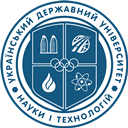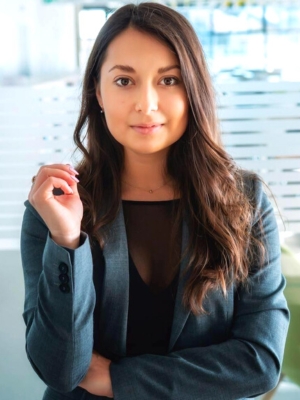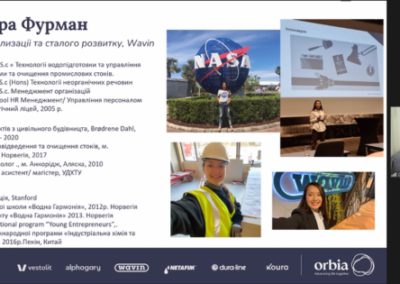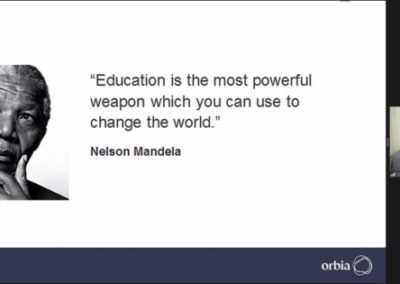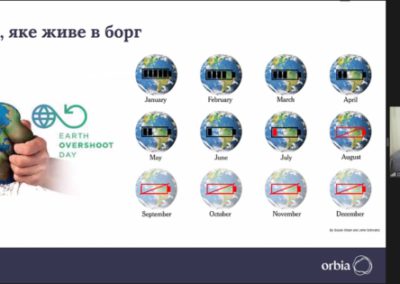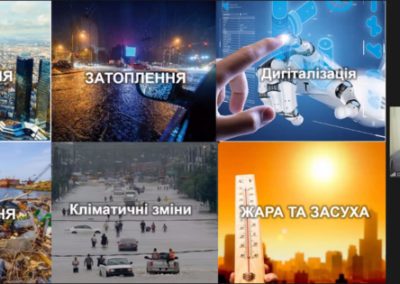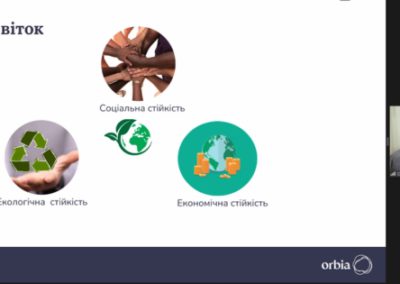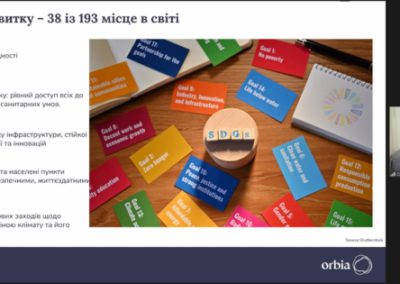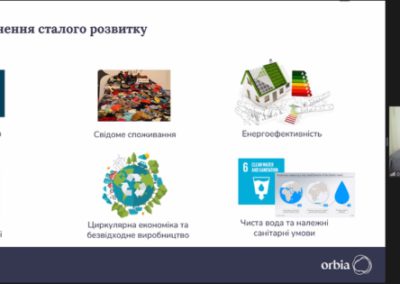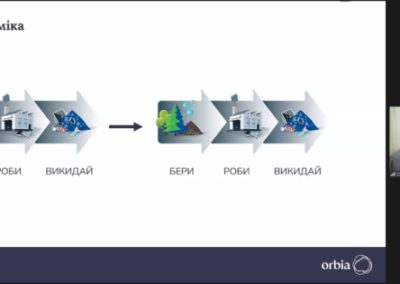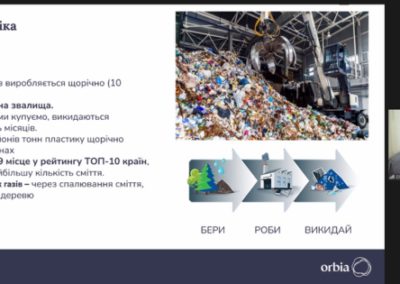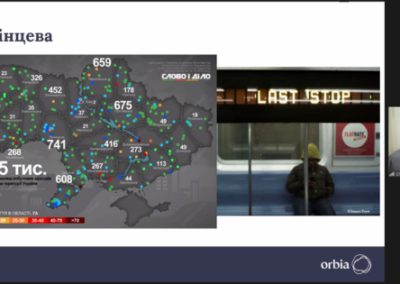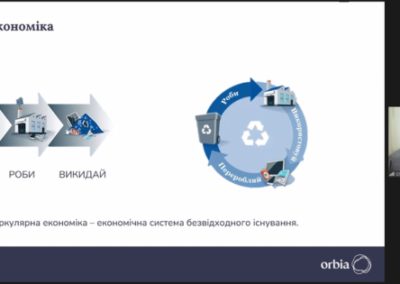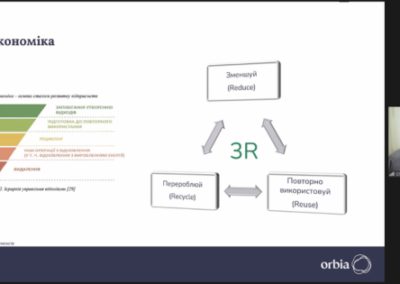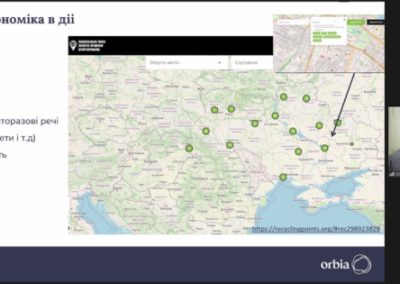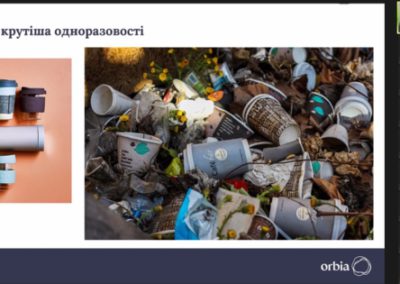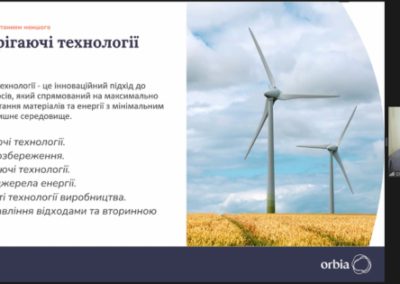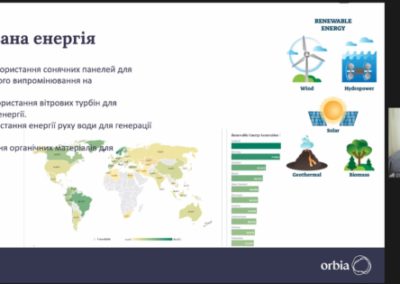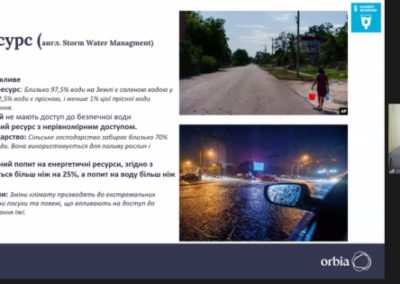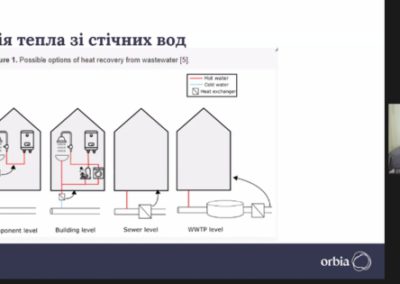Lecture by Oleksandra Furman, a graduate of the TNRtaE department, “Sustainable development and circular economy: Technologies and solutions”
On November 22, 2023, an open lecture “Sustainable development and circular economy: Technologies and solutions”, which was prepared by a graduate of the department Olexandra Furman. The lecture was devoted to a general understanding of the concepts of Sustainable Development and the circular economy and examples of concrete implementation of some tools and technologies related to these concepts.
The main issues that were considered:
1. Sustainable development and its main elements
1.1 Definition of sustainable development and its key components.
1.2 Connection between economic, social and environmental aspects of sustainable development.
2. Global challenges and consequences
2.1 Analysis of environmental problems in the modern world.
2.2 Impact of global challenges on society and economy.
3. Pathways to sustainable development
3.1 Events and agreements aimed at achieving sustainable development (for example, the UN Sustainable Development Goals).
3.2 The role of government initiatives and public participation in achieving sustainable development.
4. Technologies for sustainable development
4.1 The use of renewable energy and its impact on the components of sustainable development.
4.2 The role of resource-saving and energy-efficient technologies (including water resources management, use of rainwater, heat recovery from waste water, waste management technologies, energy efficiency technologies in houses)
5. Practical examples
5.1 Positive examples of projects and initiatives aimed at the sustainable development and implementation of the circular economy.
During her studies at the university, Oleksandra took the opportunity to participate in the international educational project “Harmonization of graduate education related to water resources (Water Harmony)” under the EURASIA program and initially entered the summer school at the Norwegian University of Life Sciences (Norges miljø- og biovitenskapelige universitet), and then received a one-year scholarship to study at this university’s master’s degree. In 2013, Oleksandra graduated from UDHTU with a master’s degree in Chemical technologies of inorganic substances and went on to study at the Norwegian University of Life Sciences under the educational program “Technologies of water treatment and management of water resources and industrial wastewater treatment”< /strong>. After graduation, Oleksandra began her career in the water industry and currently works as a consulting engineer for building information modeling at Norsk Wavin (Oslo, Norway), including her work related specifically to issues of designing buildings, building complexes and other structures taking into account modern resource-saving approaches.
The lecture was both theoretical and practical and contained specific examples in the field of implementation of modern resource-saving technologies. Oleksandra spoke about the strategy and approaches to implementing the concepts of sustainable development and circular economy, cited specific technologies, implemented examples of the modern approach to the implementation of resource-saving technologies in the construction of modern buildings, residential complexes and small settlements aimed at reducing the use of water and energy resources, which are currently being implemented in European countries.
Also, Oleksandra shared the main stages of her life path, from studying at our university to the present day and her work at Norsk Wavin.
The lecture was attended by students of the department studying the specialties Ecology and Chemical technologies and engineering and teachers of several departments: technologies of inorganic substances and ecology; entrepreneurship, production organization and theoretical and applied economics; pharmacy and technology of organic substances. The topic and material of the lecture aroused the interest of both students and teachers, so at the end of the lecture there was a lively discussion and discussion of some of the issues covered in the lecture. After that, Oleksandra sent additional information about the subject of the lecture, which the teachers of the department will be able to use in their teaching activities.
The TNR and E Department thanks Oleksandra Furman for an interesting and useful lecture!
